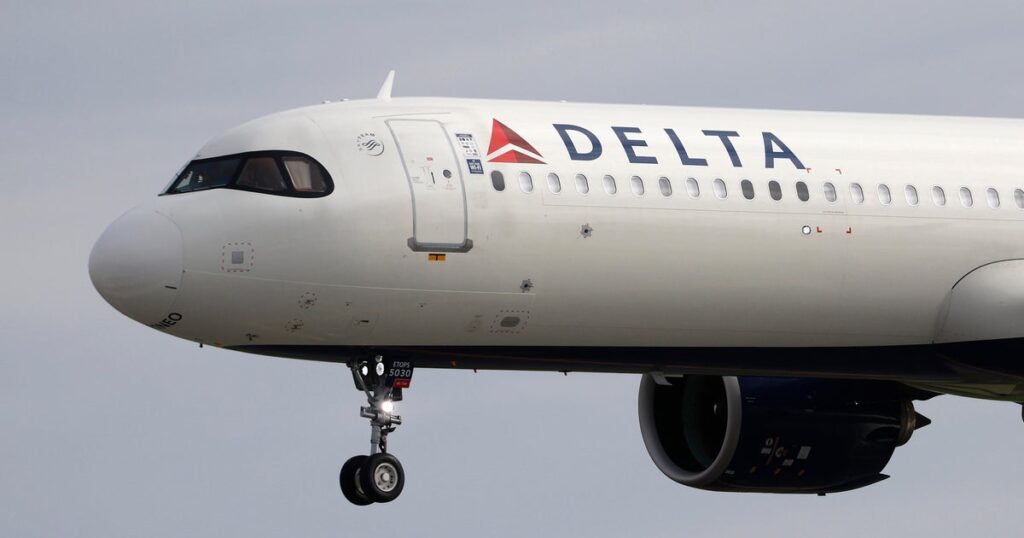Delta Air Lines has initiated a significant project to replace the auxiliary power units (APUs), which are responsible for generating power on its Airbus aircraft. This proactive step is a response to the alarming incidents of toxic fume exposure that have raised health concerns among crew members and passengers alike. The airline’s efforts, involving over 300 A320 aircraft, began in 2022 and are now more than 90% complete, marking a pivotal move towards enhancing the safety and well-being of all onboard.
| Article Subheadings |
|---|
| 1) Background on Toxic Fume Incidents |
| 2) Delta’s Replacement Initiative |
| 3) Health Implications |
| 4) Industry Responses and Comparisons |
| 5) Future Directions for Airlines |
Background on Toxic Fume Incidents
Toxic fume incidents aboard aircraft have been a growing concern for both airline crews and passengers. These events, often attributed to leaks from auxiliary power units, can lead to harmful chemicals infiltrating the cabin air supply. Reports have surfaced from many flight attendants who have experienced symptoms ranging from headaches to more severe reactions, prompting calls for urgent action. Instances of dangerously high exposure to engine emissions have not only affected Delta but have highlighted widespread concerns across various international airlines, drawing attention from regulatory bodies.
Delta’s Replacement Initiative
Delta Air Lines confirmed its initiative to replace APUs across its Airbus A320 fleet to address these toxic fumes. This comprehensive plan involves over 300 aircraft and commenced in 2022. As the project nears completion, the airline has refrained from disclosing specific financial costs involved in this endeavor. The replacement initiative is seen as a vital step in ensuring a safe environment for both employees and passengers. The airline’s transparency regarding the operational process has been commended, showcasing a commitment to public safety and well-being in air travel.
Health Implications
The health risks associated with exposure to aircraft engine emissions are well-documented. Experts like Dr. Robert Harrison, an occupational medicine specialist, have voiced concerns over the potential long-term effects of toxic fume exposure. Symptoms can range from fatigue and neurological issues to serious respiratory complications. Flight attendants have voiced their fears regarding the matter, emphasizing the urgency for effective measures. Moreover, studies indicate that continued exposure could lead to chronic health conditions, making it imperative for airlines to prioritize cabin safety through such replacement projects.
Industry Responses and Comparisons
Other airlines are also taking steps to address the toxic fume issue. For instance, Scott Kirby, CEO of United Airlines, highlighted that their proactive maintenance program focuses on monitoring oil consumption and pressure in engine systems to mitigate risks effectively. This careful approach ensures that seals are replaced preemptively to prevent dangerous leaks. In contrast, leaders from Frontier Airlines have noted that while they are monitoring the situation, incidences remain infrequent. The varying approaches among airlines highlight the need for a unified industry response to this critical safety issue.
Future Directions for Airlines
Delta is not only replacing its APUs but is also exploring the utilization of synthetic turbine oils from various manufacturers, a step that could alleviate fume emissions further. This forward-thinking approach indicates a commitment to adopting new technologies to ensure the safest possible flight experience. Airlines industry-wide may need to collaborate more closely, sharing best practices and innovations to prioritize passenger and crew health in the coming years.
| No. | Key Points |
|---|---|
| 1 | Delta Air Lines is replacing auxiliary power units on its Airbus A320 fleet to combat toxic fume incidents. |
| 2 | The replacement initiative began in 2022 and is over 90% complete, although financial details remain undisclosed. |
| 3 | Health experts warn that exposure to engine emissions can lead to serious health issues for crew members and passengers. |
| 4 | Other airlines are taking varied approaches to managing the risk of toxic fume incidents. |
| 5 | Delta’s initiative reflects a broader trend of airlines prioritizing passenger and crew safety through technological advancements. |
Summary
The replacement of auxiliary power units by Delta Air Lines represents a significant step in the aviation industry’s commitment to ensuring cabin safety for both crew and passengers. As incidents of toxic fumes pose a tangible risk, effective measures like these are vital for safeguarding health. This initiative could set a benchmark for airlines worldwide as they navigate similar concerns regarding air quality and safety, leading to improvements in both operational procedures and passenger confidence in air travel.
Frequently Asked Questions
Question: What are auxiliary power units (APUs)?
Auxiliary power units are small engines used in aircraft that provide power for various functions when the main engines are not running, such as air conditioning, lighting, and other electrical systems.
Question: How do toxic fumes affect passengers and crew?
Exposure to toxic fumes can lead to various health issues, including respiratory problems, fatigue, and in severe cases, neurological complications.
Question: What actions are airlines taking to mitigate toxic fume incidents?
Airlines, including Delta, are replacing affected engines and investigating new technologies and maintenance practices to minimize the risk of toxic fume exposure in the cabin.
